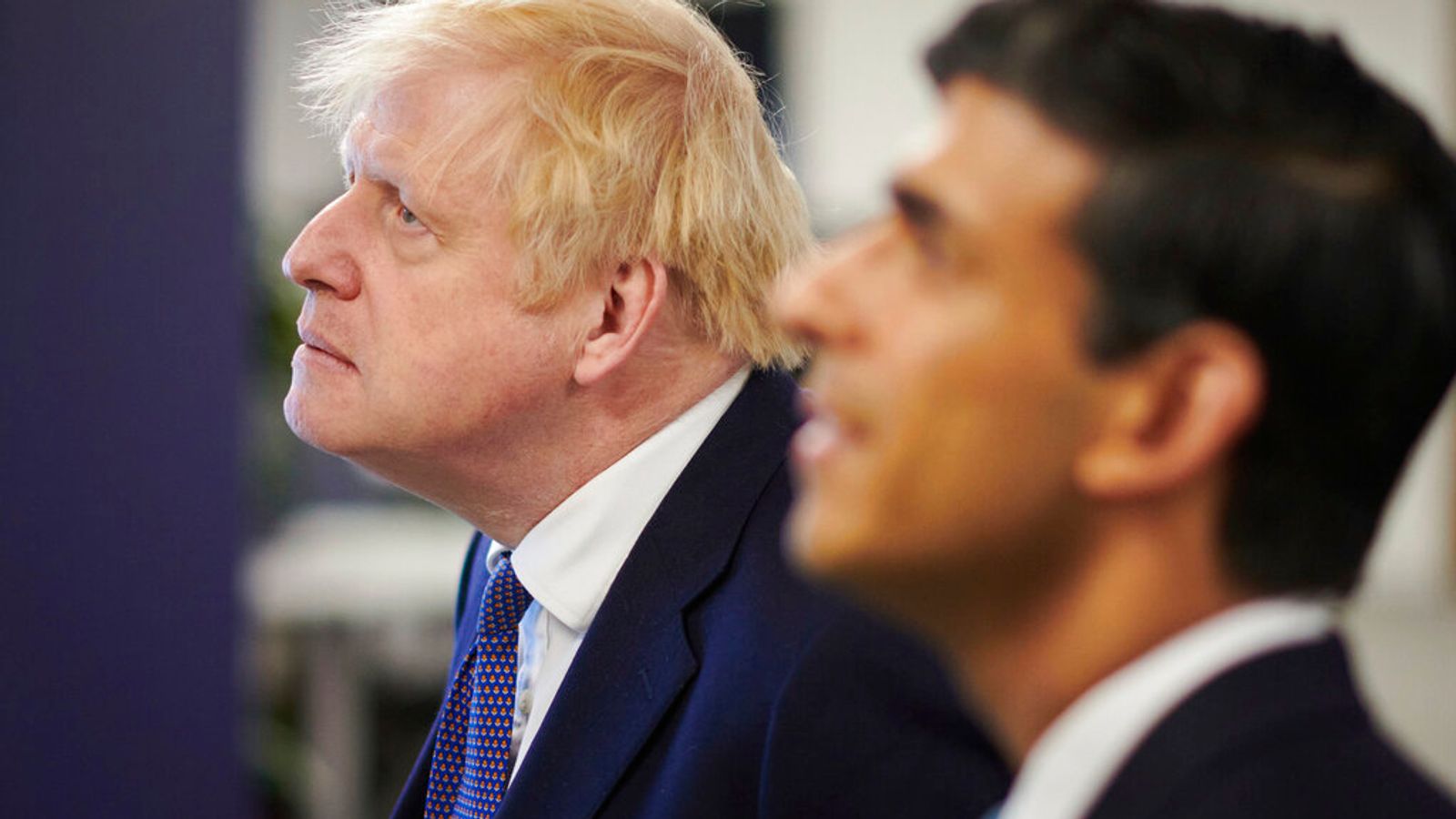The Cabinet Office has lost its bid to withhold Boris Johnson’s unredacted WhatsApp messages and notebooks from the COVID-19 Inquiry following a legal battle with its chair.
Baroness Hallett issued an order – known as a section 21 notice – for the government to release the former prime minister’s documents in May, but the government opposed it.
The Cabinet Office then took took the unusual step last month of bringing a judicial review against her order, arguing that some of the content was “unambiguously irrelevant”.
But in a judgement published on Thursday, the High Court ruled that the while “some irrelevant documents” may be included in the material requested, that “does not invalidate the notice or mean that the section 21 cannot be lawfully exercised”.
It dismissed the Cabinet Office’s claim for judicial review, but said but said the department could make a different application to Baroness Hallett.
The government said it will “comply fully” with the High Court judgment.
A spokesperson said: “The inquiry is an important step to learn lessons from the pandemic and the government is cooperating in the spirit of candour and transparency.
Ex-Tory MP Chris Pincher facing Commons suspension for eight weeks over groping claims – opening prospect of another by-election
Would Elon Musk’s Twitter changes have affected Boris Johnson’s downfall? Experts have their say
Chris Pincher: Parliamentary report imminent into claims of groping by ex-deputy chief whip
“As this judgment acknowledges, our judicial review application was valid as it raised issues over the application of the Inquiries Act 2005 that have now been clarified.
“The court’s judgment is a sensible resolution and will mean that the inquiry chair is able to see the information she may deem relevant, but we can work together to have an arrangement that respects the privacy of individuals and ensures completely irrelevant information is returned and not retained.
“We will comply fully with this judgment and will now work with the Inquiry team on the practical arrangements.”
It is understood the government are in a position to move quickly to submit the information and they are satisfied that it gives people comfort that personal, private information is not going to be held indefinitely or shared with the whole inquiry.
Deborah Doyle, spokesperson for Covid-19 Bereaved Families for Justice UK, said the judicial review lodged by the government “was a desperate waste of time and money”.
“The inquiry needs to get to the facts if the country is to learn lessons that will save lives in the future,” she said. “That means it needs to be able to access all of the evidence, not just what the Cabinet Office wants it to see.
“A successful inquiry could save thousands of lives in the event of another pandemic, and it’s a disgrace that the Cabinet Office is trying to obstruct it. Any attempt to appeal this decision or hinder its work further would be utterly shameful.”
In its reasoning for launching the judicial review, the government said it had done so with “regret” but that “important issues of principle” were at stake around privacy.
It also questioned whether Baroness Hallett had “the power to compel production of documents and messages which are unambiguously irrelevant to the inquiry’s work”, and argued that requesting such material “represents an unwarranted intrusion into other aspects of the work of government”.
But Baroness Hallett has argued it is up to her to decide what evidence is “relevant or potentially relevant” amid the legal row over the former prime minister’s documents.
Mr Johnson later decided to bypass the Cabinet Office by sending “all unredacted WhatsApps” directly to the COVID inquiry, saying he was “perfectly content” for the material to be inspected.
The former prime minister said he would “like to do the same” with texts that are on an old mobile phone he stopped using due to security concerns in May 2021 – more than a year after the pandemic began.
He said he had asked the government for its help to turn on the device securely to hand over the material.








